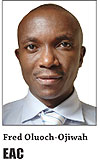If elected, as is widely predicted, President Paul Kagame’s second term in office is very likely to usher in a new dynamic within the East African Community (EAC). While the EAC is seen as one of Africa’s integration success stories, East Africans will have to bring into play a combination of greater foresight and political maturity to actualise its goals.


If elected, as is widely predicted, President Paul Kagame’s second term in office is very likely to usher in a new dynamic within the East African Community (EAC).
While the EAC is seen as one of Africa’s integration success stories, East Africans will have to bring into play a combination of greater foresight and political maturity to actualise its goals.
Learning and sharing of new experiences within public service, given the different and unique backgrounds of the member-states will most likely add significant value to the integration project.
Rwanda’s success story is nothing new to the EAC. To add to its previous success, Rwanda seeks, by 2015, to emerge as the link between East with Central Africa. One of the most important ingredients to that will be bringing the DRC to the EAC fold.
The entry of the DRC into the EAC will mean a lot of things to East Africans. The size of the block will increase substantially. With this huge increase, trade prospects will increase in similar fashion.
from a purely geographical perspective, Kigali will emerge as the hub of the expanded EAC as the DRC, with its huge potential, will use Kigali as a staging point to the EAC. For instance Kenyan banking brand, the KCB Group will probably use its Kigali office to open up new branches into the DRC in areas such as Goma.
The Eastern fringes of the DRC, due to its close proximity to Rwanda will be brought into the EAC’s huge economic system. It is Rwanda which will most likely provide the stewardship of this process. By so doing, Rwanda stands to gain substantially.
Another area will be in offering innovations within public service. While working and living in Rwanda, I have noticed that Rwandans take for granted several initiatives that the government has provided to them for the past 7 years. However, some of these goodies are new to the rest of East Africans.
Kenyans are clamouring for a new constitutional order in which technocrats, not politicians run government. However, in Rwanda technocrats have been running government for the past ten or so years.
Some of these technocrats are now exporting this new innovation to other equally critical areas in Africa and even beyond.
A perfect case is Dr.Donald Kaberuka , the President of African Development Bank(AfDB) who is credited with stewarding Rwanda’s highly ambitious liberalization policies in mid 1990s as Finance Minister.
There are several issues that East Africans will readily learn from the Rwanda story, which Rwandans readily take as their right. None of the EAC member states has thought of ensuring universal health insurance for its citizens.
In Rwanda it is not even something to talk about. If anything, Rwandan authorities are now talking about fine tuning it to make it even better. The transformation, which has seen Rwanda emerge as a top reformer in doing business, is credited to President Kagame’s vision for transforming his country.
After the 1994 genocide against the Tutsi, Rwanda was known to the whole world as Africa’s biggest grave yard. In just less than twenty years, Rwanda has defied the odds to stand up to be counted.
Such great lessons will definitely add very significant value to the EAC when, particularly difficult decisions and drafting of consensus will be needed to bring forth the political federation.
Fred Oluoch-Ojiwah is a journalist with The New Times


